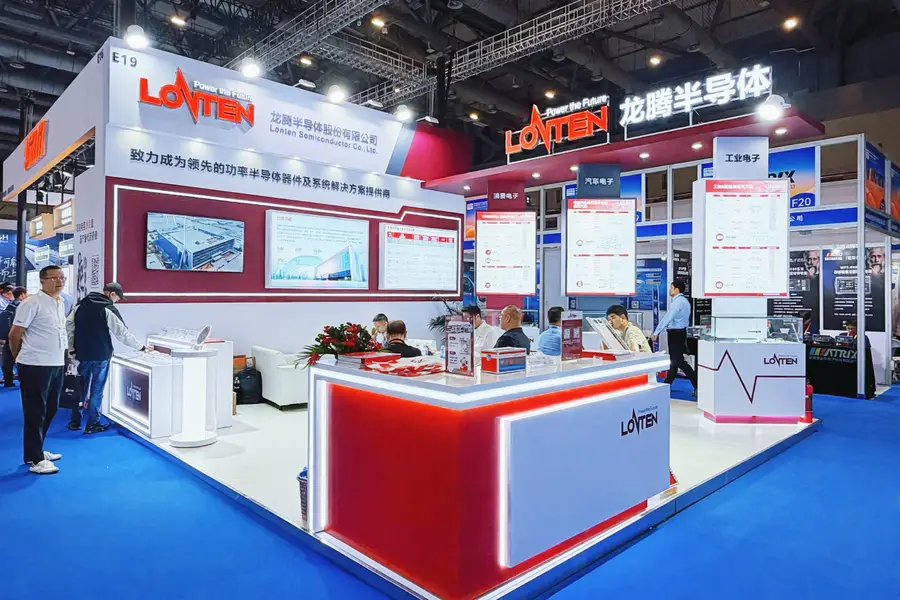China Int’l Development ditches leather for power semiconductors

The leather goods maker has signed an MOU to acquire power semiconductor maker Lonten, after an earlier deal to invest in a blockchain company collapsed
Key Takeaways:
- China International Development has agreed to acquire power semiconductor maker Lonten in a deal worth up to HK$9 billion
- The deal, if completed, would most likely equate to a backdoor listing for Lonten, which is much larger than the money-losing China International Development
By Doug Young
If leather isn’t working for you and neither is blockchain, then what do you do next?
Power semiconductors seems to be the answer, at least if your name is China International Development Corp. Ltd. (0264.HK), which on Friday announced a sort of “Mouse that Roared”-type deal by saying it plans to acquire a company much larger than itself. It doesn’t take much detective work to figure out the deal, if completed, would represent a backdoor IPO by Lonten Semiconductor Co. Ltd., a maker of power semiconductors based in Xi’an, capital of Northwest China’s Shaanxi province.
We say “if completed” here, because it looks like there’s a good chance that this deal may not make it to fruition, at least based on shareholder reaction after publication of the news. China International Development’s stock didn’t do much on Monday, the first trading day after the announcement, trading both above and below its last closing price during the morning session, before closing up about 5% at the midday break.
The company, which mainly sells leather goods and accessories, is currently valued at about HK$1 billion ($128 million), or just a fraction of the HK$4.5 billion to HK$9 billion it said it would pay for Lonten under a newly signed memorandum of understanding (MOU). China International Development said that it would pay for Lonten using cash, by issuing new shares, or through a combination of the two.
But given China International Development’s size and balance sheet, which includes just HK$1.31 million in cash at the end of June, it’s almost certain it would pay for a deal through a massive issue of new shares giving control of the company to Lonten. In its announcement, China International Development says it would acquire 100% of Lonten’s shares, including the roughly 25% stake held by Xu Xichang, Lonten’s chairman and single largest shareholder.
The deal certainly makes sense for China International Development, whose existing business isn’t going anywhere fast and could definitely use this kind of makeover. The company’s revenue is tiny and was contracting for three years, falling by more than half from HK$56 million in 2022 to HK$22 million last year, before finally returning to growth in the first half of this year.
The company’s bottom line and balance sheet look even worse. It has been losing money since at least 2021, including a HK$7.6 million loss in the first half of this year. And its current liabilities of HK$63.5 million are about triple its current assets of HK$21.7 million. The company has turned to investors four times over the last year to raise around HK$70 million by selling new shares at a discount to keep funding its operations.
In its announcement, China International Development says it has been “seeking to expand its business,” and adds that the newly signed MOU gives it three months to reach a final agreement with Lonten. “The group believes the proposed transaction will enable the group for further expand its business scope,” China International Development said.
Failed blockchain deal
The reason for some investor skepticism probably owes at least partly to another potentially transformative deal that China International Development announced in August that would have taken it into the hot blockchain space. Under that deal, the company said it had agreed to pay HK$100 million in cash and stock for 20% of NVTH Ltd., whose main business entity was a company called Hangzhou Keshan. It described Keshan as a “blockchain-based technology infrastructure platform for real-world asset (RWA) tokenization.”
Announcement of such deals involving blockchain, cryptocurrency and RWA have become relatively common among Hong Kong companies this year, seeking to create buzz as the cryptocurrency market zoomed. China International Development’s stock jumped 68% the day after the August announcement, and more than doubled in the following days on the hype. Never mind that Keshan was tiny in terms of business scale, even smaller than China International Development, with just HK$2.46 million in revenue for 2024.
But then China International Development announced in late September that the deal was unlikely to close by a Sept. 30 deadline, though it tried to keep its blockchain story alive by saying it was still “actively considering the commencement of the Web3 and digital assets business.” Surprisingly, its stock didn’t fall too much after announcement of the deal’s likely collapse. It currently still trades about 90% higher than where it was before the Keshan announcement, perhaps because investors realized the company was looking for a transformative deal to take it away from its tiny and stagnating leather goods business.
Now, it appears to have found that potential deal with Lonten, which is admittedly in an area that looks poised for strong growth in the years ahead. The power semiconductors that are Lonten’s bread-and-butter are chips that control the flow of electricity to reduce power loss in electronic devices, and are important for energy conversion and efficient power management. They are emerging as a key component in new energy cars and green power plants – two areas which look set for strong growth.
That said, Lonten looks like an extremely small fish in this space, with most of the world’s other major chipmakers, including Infineon (IFX.DE), Texas Instruments (TXN.SU) and Broadcom (AVGO.US), all engaged in the sector. Lonten’s website says it began operating a cutting-edge production line using 8-inch wafer technology last year, and received government permission to start building the line’s second phase earlier this year.
The company’s website says it has more than 600 employees and 1,000 customers, with R&D facilities in Xi’an, Shanghai and Germany, though it appears that most of its business is in China. Data from Pitchbook.com differs quite a bit, though it could admittedly be outdated, saying the company has just 135 employees. Pitchbook says Lonten has received $62.5 million in five funding rounds since its inception in 2009, which looks tiny when you consider the capital-intensive nature of semiconductor production.
No one seems to have any financials on Lonten, though we’ll almost certainly see some if and when China International Development signs a merger deal that would basically equate to a backdoor listing for Lonten. We wouldn’t give this deal too much chance for success, perhaps 50-50. But this deal could stand a better chance of success than the earlier Keshan investment if the price is right. After all, China International Development clearly needs a new direction, and Lonten would undoubtedly like to have access to the global capital markets that it would obtain through this kind of backdoor listing.
To subscribe to Bamboo Works weekly free newsletter, click here






